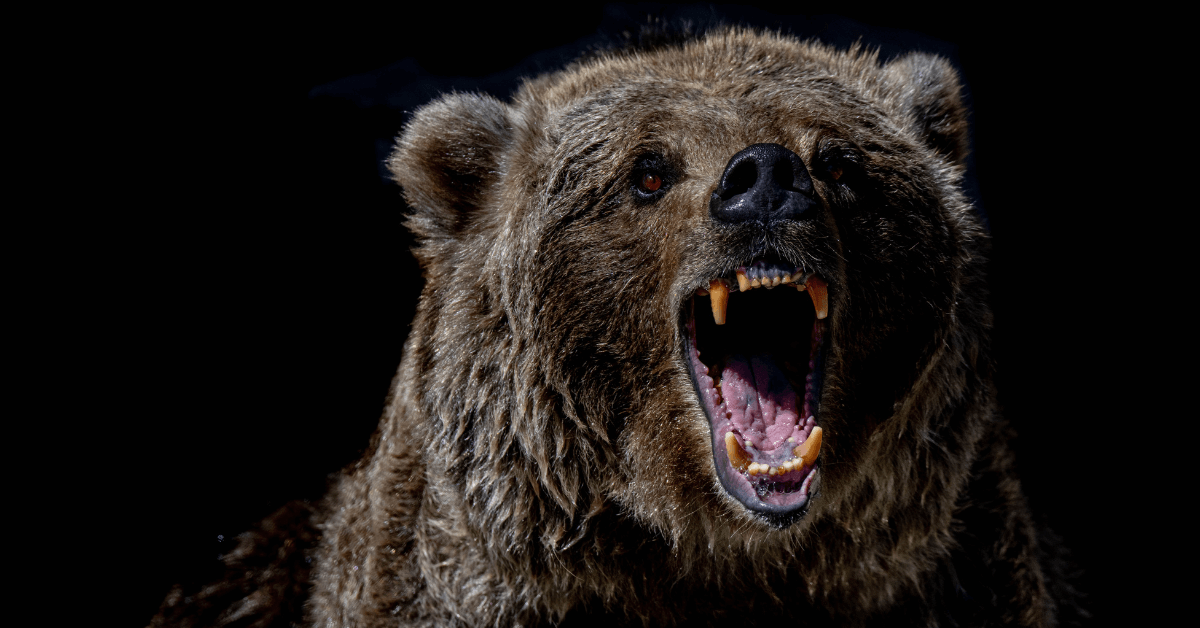Bears are majestic creatures that roam the wilderness, but they can also be dangerous. If you’re out in bear country, it’s important to know what to do if a bear comes near you, or worse, sniffs you. In this guide, we’ll cover everything you need to know about bear safety, including how to avoid a bear encounter, what to do if a bear approaches you, and how to survive a bear attack.
Things You Can Do to Avoid a Bear Encounter
The best way to deal with a bear is to avoid an encounter altogether. Here are some things you can do to decrease the chances of a bear coming near you:
The first step in avoiding a bear encounter is to be aware of your surroundings. If you’re planning on hiking or camping in bear country, make sure to familiarize yourself with the area, including the types of bears that are known to inhabit the region. Knowing the types of bears in the area will help you understand their behavior and how to react in a bear encounter. Once you’ve established that, here are things you can do
- Make noise: When you’re out in a bear country, make noise while you’re hiking. This will alert bears to your presence and give them a chance to move away before you get too close. Carry bear spray and know how to use it. Bear spray is a pepper-based repellent that can deter bears from approaching you.
- Carry bear spray: Bear spray is a type of pepper spray that is designed to deter bears. Make sure to carry it with you when you’re out in bear country, and know how to use it.
- Keep a clean camp: Bears are attracted to food, so make sure to keep your camp clean and free of food smells. Store your food in bear-proof containers and hang them at least 10 feet off the ground and 4 feet away from a tree trunk.
What to Do if a Bear Approaches You
If a bear approaches you, it’s important to stay calm and not panic. The first step is to assess the bear’s behavior and body language. If the bear is standing up on its hind legs, it’s likely that it’s just trying to get a better look at you and is not necessarily aggressive. However, if the bear is making loud noises, swatting the ground, or displaying other aggressive behavior, it’s important to take immediate action.
One effective strategy is to slowly back away while facing the bear. Do not turn your back on the bear or run away, as this can trigger a chase response. Speak in a calm and assertive voice, making it clear to the bear that you are human and not prey. Make yourself look as big as possible by raising your arms above your head and standing on tiptoes.
Studies have shown that this type of behavior can help deter bears from approaching humans. A study conducted by the Alaska Department of Fish and Game found that bears were much less likely to approach humans who stood tall and made themselves appear larger. Another study published in the Journal of Wildlife Management found that bears were less likely to approach humans who spoke in a calm and assertive voice.
Related: What To Do When A Bear Is Sniffing Around Your Tent
What to Do if a Bear Sniffs You
If a bear sniffs you, it’s an indication that the bear has caught your scent and is curious about you. Remain still and silent until the bear loses interest and leaves the area. Do not make eye contact with the bear, as it can be perceived as a threat.
It’s important to remember that bears are curious animals and may approach you out of curiosity, rather than aggression. If a bear approaches you and doesn’t seem aggressive, slowly back away while facing the bear. Do not turn your back on the bear or run away, as this can trigger a chase response.
How to Scare a Bear Away From You

If a bear is getting too close for comfort, you may need to take more drastic measures to scare it away. Here are some things you can do to scare a bear away:
Scaring a bear away from you can be challenging, but there are certain techniques that can be effective in deterring bears. One effective strategy is to make loud noises, such as shouting, clapping, or using a whistle or air horn. This can startle the bear and make it feel uncomfortable, causing it to retreat.
Another technique is to use bear spray, a pepper-based repellent that can deter bears from approaching you. Bear spray is designed to create a cloud of pepper spray that can cause the bear’s eyes and nose to burn, making it uncomfortable and causing it to retreat. Bear spray can be effective in deterring bears from approaching you, with a study conducted by the University of Alberta found that bear spray was more effective at deterring bears than firearms in close-range encounters.
It’s also important to remember that bears are wild animals and their behavior can be unpredictable. While these strategies can help scare a bear away, it’s always best to err on the side of caution and avoid bear encounters altogether by being aware of your surroundings and staying away from known bear habitats.
Another strategy is to use a “bear bell” while you are hiking. This is a small bell that you can attach to your backpack or clothing that will make noise while you walk, alerting bears to your presence and giving them a chance to leave the area before you come across them. A study conducted by the University of Calgary found that hikers who used bear bells had a lower likelihood of encountering bears compared to hikers who did not use bear bells.
It is also important to note that, according to the National Park Service, bears have an incredible sense of smell and although making noise, using bear spray and bear bells may work in some cases, it doesn’t guarantee the bear will leave, especially if the bear is attracted to food, a female with cubs or a wounded animal. So, it’s always best to be prepared and have a plan in case of an encounter.
What to Do if a Bear is About to Attack You
If a bear is about to attack you, it’s important to understand that you need to defend yourself. Here are some things you can do to protect yourself from a bear attack:
- Play dead: If a bear is attacking you, playing dead can be an effective way to make it stop. Lie flat on your stomach, clasp your hands behind your neck, and spread your legs to make it harder for the bear to flip you over. Remain still and silent until the bear leaves the area.
- Fight back: If playing dead doesn’t work, or if the bear is a grizzly and you’re certain it’s a predatory attack, fight back with everything you have. Use bear spray, rocks, sticks, or any other available weapon to hit the bear in the face and muzzle.
Should I Punch a Bear in the Nose?
No, under no circumstances should you punch a bear in the nose or try to physically fight it. While it may seem like a macho or heroic thing to do, it is extremely dangerous and unlikely to be effective. Bears are incredibly strong and powerful animals and trying to physically fight one could result in serious injury or death.
One study published in the Journal of Wilderness Medicine found that people who attempted to fight a bear with their bare hands were more likely to suffer severe injuries compared to those who used other tactics, such as playing dead or using bear spray.
Instead of trying to punch a bear in the nose, it’s important to use non-lethal tactics to deter the bear, such as making loud noises, using bear spray, or slowly backing away while facing the bear.
Can a Human Survive a Bear Attack?
It is possible for a human to survive a bear attack, although it is a rare occurrence. The chances of survival depend on a variety of factors, such as the type of bear, the circumstances of the attack, and the actions of the person being attacked.
According to a study published in the Journal of Wilderness Medicine, the majority of bear attacks are defensive in nature, meaning that the bear is trying to protect itself or its cubs and is not trying to prey on the person. These types of attacks are less severe, and the chances of survival are higher.
If a bear attack is predatory, the chances of survival are lower. It is important for people to know the difference between a predatory and defensive behavior of a bear and act accordingly.
Conclusion – What To Do If A Bear Sniffs You
So, to conclude, it’s important to remember that bears are wild animals and should be respected as such. By taking the necessary precautions and knowing how to react in a bear encounter, you can greatly decrease your chances of a negative interaction with these majestic creatures. Remember to always be aware of your surroundings and stay alert while in bear country.”
Please note that the information provided in this article is for educational purposes only and should not be used as a substitute for professional advice or common sense.
